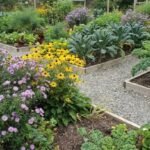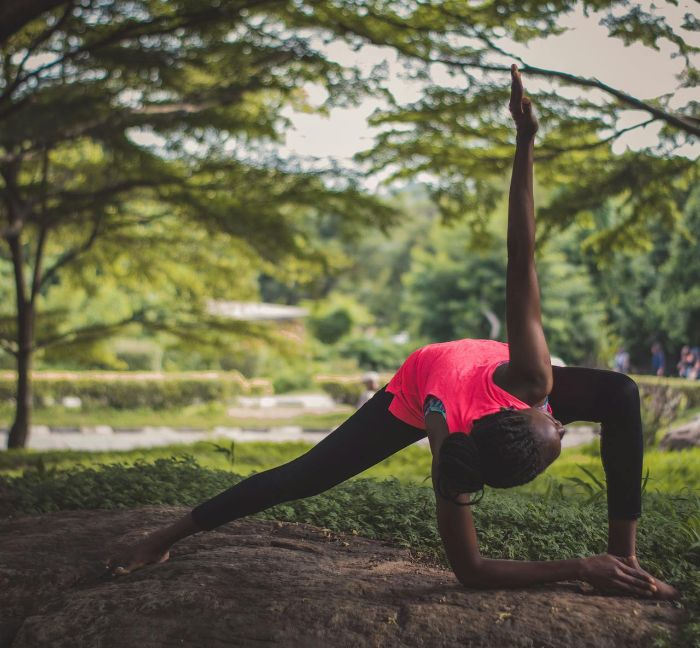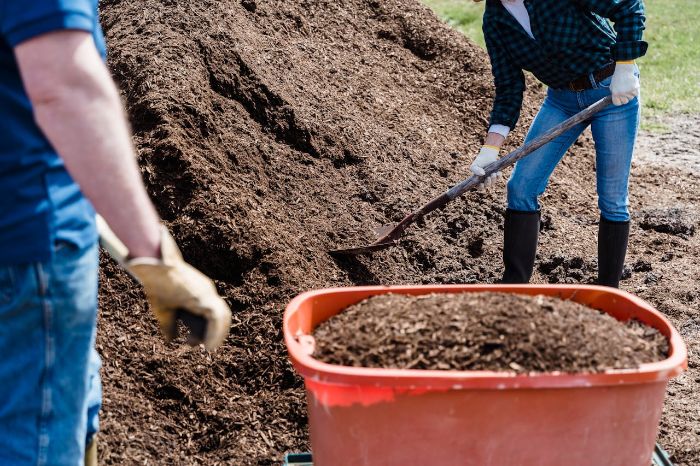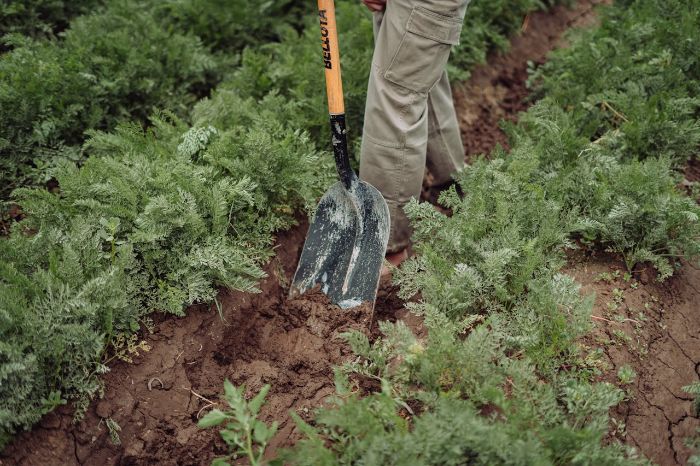Have you thought about your garden as a place for calm and focus? In our busy lives, we often forget the peace that nature offers right outside. By adding mindful gardening to your day, you can feel closer to nature and improve your mind.
This section will show how easy gardening can make your space a peaceful place. It’s a step towards a calmer and more balanced life.
Key Takeaways
- Mindful gardening fosters relaxation and promotes mental clarity.
- Engaging with nature can enhance overall well-being.
- Daily gardening routines facilitate mindfulness practices.
- Simple gardening tasks can serve as effective relaxation techniques.
- Creating a garden encourages reflection and tranquility.
Table of Contents
The Connection Between Gardening and Mindfulness
Gardening connects us to the present moment. It helps us feel more aware. This bond between gardening and mindfulness boosts our emotional health. It also helps us connect with nature.
Doing gardening regularly brings many benefits. It improves our mental health. We feel more relaxed and clear-minded.
How Daily Gardening Promotes Relaxation and Mental Clarity
Daily gardening tasks require our full attention. They help us forget our daily worries. Working with soil and plants makes us feel calm and focused.
While we garden, we find peace. We enjoy the quiet and the growth of our plants. It’s a time to relax and be at peace.
The Benefits of Incorporating Mindful Practices into Gardening
Mindfulness in gardening makes it even better. It makes us pay attention to every detail. This helps us feel more grounded and connected.
Here are some benefits of mindful gardening:
- Less anxiety
- Better mood and self-esteem
- More focus and awareness
- Stronger bond with nature
Morning Gardening Routines to Start Your Day
Starting your day with gardening routines is great for your mind and body. Stretching and breathing help wake you up gently. These activities also connect you more with nature and improve your well-being.
Breathing and Stretching While Preparing Your Garden
Adding stretching and breathing to your gardening makes it peaceful. These actions help loosen up your body and make you feel alive. Here’s how to do it:
- Start with deep breaths, taking in the fresh morning air.
- Do some light stretches to get your muscles ready.
- Pay attention to your movements as you get your garden ready.
These practices help you start the day with a clear mind, ready for gardening.
Observing Nature – Noticing Changes and New Growth
Watching nature is key in your morning gardening. It makes you thankful and aware. This experience makes you more mindful as you:
- Look at flowers that are blooming or new plants growing.
- See signs of animals that come to your garden.
- Think about how your work helps the environment.
These moments make you appreciate your garden more. They also bring you peace and a connection to the world.
Midday Garden Breaks for Stress Relief
Taking a break in the middle of the day can really help your mind. Doing small gardening tasks during lunch is great for stress relief. These quick activities clear your mind and refresh your spirit.
Short, Focused Tasks to Break Up Your Day
Doing simple tasks can make your day better. Try these activities:
- Weeding a small area of your garden
- Deadheading flowers to promote new blooms
- Watering plants in specific garden beds
- Organizing gardening tools for efficient use
These tasks offer a quick break from daily life. They make you feel good and connect you with nature.
Connecting with Your Senses – Touch, Smell, and Sound in the Garden
Use your senses during your garden break. The sensory garden experience is very enriching:
- Feel the textures of various leaves and petals, noting their differences.
- Inhale the fragrance of flowers and herbs, allowing those scents to calm your mind.
- Listen to the sound of rustling leaves and chirping birds, grounding you in your surroundings.
These sensory experiences help you relax and appreciate your environment. They have a lasting positive effect on your well-being.
Evening Gardening for Reflection and Wind Down
Evening gardening is a peaceful way to end the day. As sunset lights up your garden, tasks like harvesting and watering calm your mind. These activities help you relax and feel at peace.

Harvesting and Watering as Calming Evening Rituals
Harvesting ripe veggies or herbs is rewarding. It shows you’re thankful for your hard work. Watering plants in the evening is calming too. It’s a chance to slow down and enjoy the moment.
Sunset Gardening – Enjoying the Soft Light and Quiet
Sunset gardening lets you enjoy nature’s beauty. The soft light makes everything calm. It’s a great time to think about your day and feel connected to nature.
Incorporating Mindfulness into Routine Garden Tasks
Doing mindful gardening turns simple tasks into special moments. It makes us more aware of our actions and thoughts. Weeding and planting become chances to think deeply and find peace.
Weeding and Pruning as Meditative Practices
Weeding can be a way to find calm. Pulling weeds is like removing worries, making room for clear thoughts. As you weed, pay attention to the soil and smells. Enjoy the feeling of your hands in the earth.
This makes your gardening time more peaceful and fulfilling.
Mindful Planting – Focusing on Each Seed and Its Potential
Planting with mindfulness means focusing on each seed. Think about its growth and the life it will support. This practice deepens our connection with nature and teaches us about growth.
Planting can be a meditation, teaching us patience and love for nature.
Seasonal Routines to Maintain Mindfulness Year-Round
Mindfulness in gardening means adapting to each season. Gardening is always changing, with new tasks and chances to think deeply. By following seasonal routines, you can find peace and connect with nature all year.

Adapting Routines to Seasonal Changes and Garden Needs
Every season needs something different from your garden. Spring is for planting, summer for caring, autumn for harvesting, and winter for planning. By changing with the seasons, you connect more deeply with your garden. Make a flexible plan that fits the garden’s natural flow. This makes gardening a mindful journey all year.
Finding Joy in Different Seasonal Tasks
Each season brings its own joys and lessons. Spring is exciting with new seeds, summer is full of growth, autumn shows nature’s beauty, and winter invites quiet thought. By embracing these changes, you grow in mindfulness all year.
Creating a Mindful Space in Your Garden
Designing a mindful space in your garden means making a special area for meditation. This quiet spot lets people connect deeply with nature. It helps them relax and feel peaceful.
Designing a Quiet Corner for Meditation and Reflection
A quiet corner is like an oasis in your busy life. Pick a spot that’s far from distractions. This way, you can think deeply without interruptions.
Here are some ideas to make your space peaceful:
- Position comfortable seating where you can observe nature.
- Choose soft, natural colors that match the landscape.
- Use plants that grow well there to make the space even more calm.
Incorporating Elements that Encourage Mindfulness: Water Features, Benches, and Paths
Adding mindful garden features can make your meditation spots better. Water features, like ponds or fountains, create a calming sound. Benches offer a cozy place to sit and think. Paths lead you on a gentle journey through the garden.
Think about these ideas:
- Install a small pond or fountain for a soothing sound.
- Put in sturdy benches that look good with the garden.
- Make paths that wind through different parts of the garden.
Tips for Staying Consistent with Mindful Gardening Routines
Keeping up with gardening helps a lot with mindfulness. Setting small goals makes gardening a part of your day without stress. It makes gardening more rewarding and improves your life.
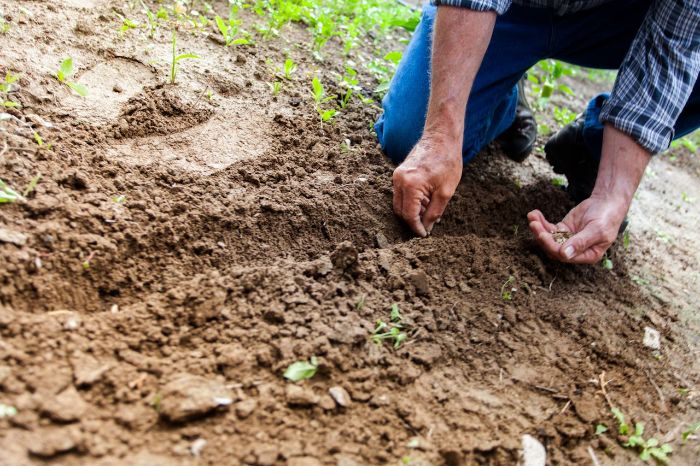
Setting Small, Achievable Goals for Daily Gardening
Setting goals is key to good gardening habits. Start with easy, doable tasks. For instance:
- Commit to spending 10-15 minutes a day tending to your plants.
- Choose one new task each week, such as planting, weeding, or watering.
- Focus on learning about one new plant variety each month.
These small tasks help you feel accomplished. They help you connect more with your garden.
Keeping a Garden Journal to Reflect on Your Experiences
Keeping a garden journal tracks your gardening journey. It helps you see how you’ve grown. Include:
- Daily observations of plant growth and environmental changes.
- Personal reflections on what gardening tasks brought you peace or joy.
- Future goals or desired changes for your garden space.
This practice helps you grow and stay mindful. It makes gardening a special part of your life.
Conclusion
Daily gardening routines are a great way to relax and feel better. They help us connect with nature and calm our minds. Working with soil and plants makes us feel more grounded and peaceful.
Doing things like weeding and pruning helps our mental health. These activities let us enjoy the calm of nature. They also help us take care of ourselves.
It’s all about finding peace in our daily lives through gardening. By gardening mindfully, we make our gardens better and feel happier. So, let’s get our hands dirty, breathe deeply, and enjoy the calm that gardening brings.
FAQ
What are the benefits of incorporating mindful gardening into my daily routine?
Mindful gardening makes you relax and think clearer. It helps you feel calm and happy. It also boosts your self-confidence.
How can I start my day with a morning gardening routine?
Start with deep breathing and stretching. Then, get ready for your garden. Watching nature grow makes you thankful and aware. It sets a good mood for the day.
What are some effective midday gardening breaks for stress relief?
Try short tasks like picking flowers or weeding. These activities use your senses. They help you relax and forget daily worries.
How does evening gardening contribute to mindfulness?
Evening gardening, like watering, is calming. The sunset makes it even more peaceful. It helps you unwind and connect with nature.
What features can I include in my garden to create a mindful space?
Make a quiet spot for meditation. Add water features, benches, and paths. These features make your garden peaceful. They help you find calm and think deeply.
What are some tips for maintaining consistency in mindful gardening?
Set easy gardening goals that fit your life. Keep a garden journal. It helps you see your progress. It shows the value of these calming activities.



